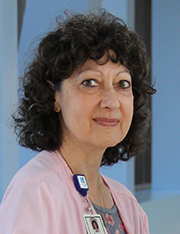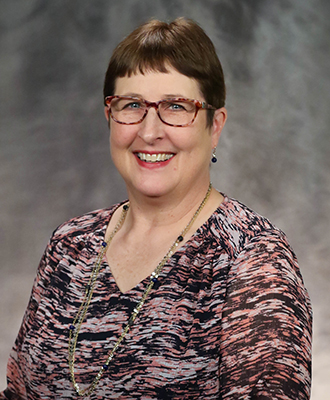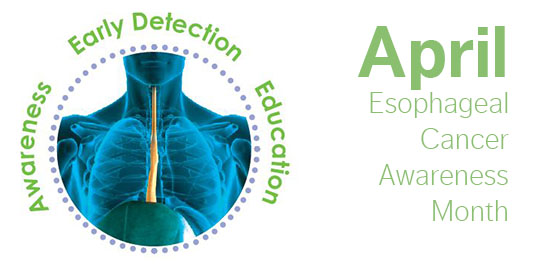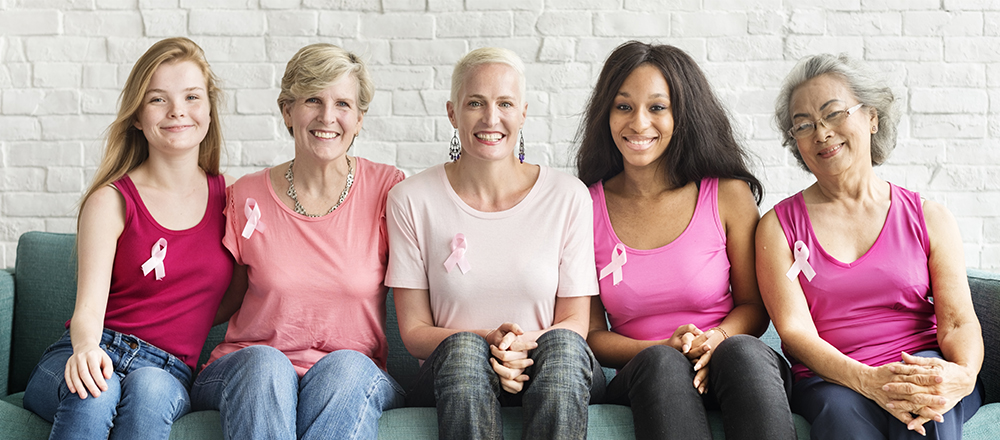
Genetic testing helps people realize and understand their inherited risk for diseases such as ovarian, uterine, colon and breast cancer. Most cancer is not inherited and is typically caused by environment and lifestyle, but in some families, certain patterns may point to an inherited cancer gene.
In these cases, family members may pass a mutation down to other family members, increasing their risk for cancer. Some of these mutations can now be identified by simple, yet sophisticated, genetic tests such as the Myriad myRisk Hereditary Cancer screening test. NKCH is one of the only hospitals in the area to offer patients this particular in-depth screening.
“Previously, genetic testing was conducted based on a family history of specific types of cancer, and we could only test for the type of cancer indicated,” explains Peggy Eldredge, oncology clinical nurse specialist. “It didn’t take into account family history of diseases with overlapping genetic patterns that could indicate an increased risk for other cancers.
With myRisk, candidates must still meet the family history and insurance coverage criteria and have a doctor’s order, but it checks for 25 different genetic mutations. “For example, a patient diagnosed with breast cancer can be found to be at a higher risk for colon cancer and vice versa. This test can reveal those additional genes,” Peggy explains.
Who Is at Risk?
Although it’s impossible to tell (without testing) who carries a cancer gene, there are some characteristics that can help you decide if testing is right for you.
- Adults who develop cancer before age 50
- Two or more close relatives (mother, father, aunt, uncle, grandparents, children) with the same type or related cancers
- More than one cancer diagnosis in the same relative
- Very rare cancers or cancer syndromes
- History of colon polyps
Making the Decision
While some people want to know what may lie ahead, others express hesitation about knowing the future. Tracy Overton and Jodi Rawson, whose stories appear below, share their personal and unique perspectives.
Tracy Overton
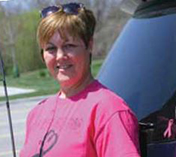 Tracy Overton knew the depth of pain and sadness breast cancer can have on a family. Tracy’s aunt, maternal grandmother and oldest sister, Cheryl, were diagnosed with the disease. Cheryl died at age 48.
Tracy Overton knew the depth of pain and sadness breast cancer can have on a family. Tracy’s aunt, maternal grandmother and oldest sister, Cheryl, were diagnosed with the disease. Cheryl died at age 48.
“That’s when breast cancer became real for me,” Tracy says. Other family members learned through genetic testing they were at increased risk for breast cancer. Tracy’s two living sisters and a niece carry a breast cancer gene, known as BRCA2, and all three women opted to undergo a double mastectomy.
Tracy debated for years about genetic testing, even after her sister’s death. “I didn’t know much about testing, and most importantly I wasn’t sure what to do if something was found.”
Tracy’s decision got easier when she discovered a lump during a breast self-exam last year. While the lump was benign, Tracy decided to undergo the test, which revealed she also carried the BRCA2 gene. Not long after, Tracy underwent a double mastectomy at North Kansas City Hospital. “My cancer was extremely fast-growing,” Tracy explains. “Surgery was the only way to stop it. I now feel strongly that people should be tested.”
Jodi Rawson
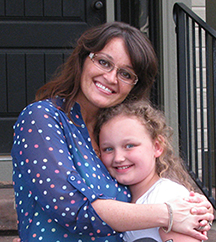 Growing up, Jodi Rawson remembers hearing about a family history of cancer. Her grandmother passed from ovarian cancer and another relative had breast cancer. In her immediate family, she lost a brother to brain cancer, and her mother underwent breast cancer treatment.
Growing up, Jodi Rawson remembers hearing about a family history of cancer. Her grandmother passed from ovarian cancer and another relative had breast cancer. In her immediate family, she lost a brother to brain cancer, and her mother underwent breast cancer treatment.
Jodi knew testing could help determine her genetic risk for breast cancer, but with a price tag of more than $3,000, it wasn’t in her budget.
When she became a mother to a son and daughter, the idea of testing stayed in the back of her mind. “As my daughter got older, I did think more about the test,” Jodi recalls.
While enrolling for healthcare coverage last year, Jodi discovered her insurance now provides better coverage for genetic testing, so she scheduled the test at North Kansas City Hospital. Her results came just four days later with good news: she doesn’t carry the BRCA1 or BRCA2 breast cancer gene. “It was a relief to know,” Jodi says.
